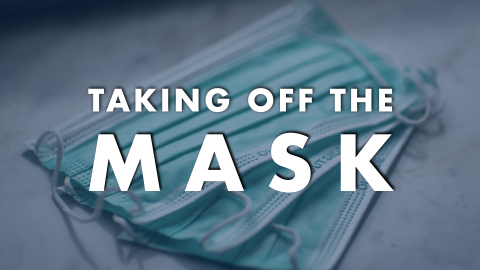
On Wednesday, April 8, Kansas lawmakers overturned an order by Governor Laura Kelly that limited church gatherings to ten people. On Saturday, the Kansas Supreme Court, in an emergency session to resolve this dispute, ruled that the governor does have the authority to shut down operations in the state, including large church services, in the face of a public health crisis.
State governments across the country have responded to the COVID-19 pandemic by ordering residents to avoid gathering together in large groups. This includes gatherings such as Chapel Oaks’ weekly worship service. Some churches refuse to comply with these recommendations to temporarily suspend in-person religious services, claiming that these orders violate their religious freedoms to peaceably assemble. A poll conducted in mid-March found that nearly a fifth of religious Americans said they were still attending in-person services.
Most churches by now have adhered to the restrictions and advised their parishioners to stay at home to stop the spread of the virus. Easter weekend, however, presented a challenge even for these churches. John Greiner, leader of the Glorious Way Church in Houston initially moved services online after the county limited large gatherings, but his congregation did hold in-person services on Easter. “We can’t do what God called us to do on livestream,” Greiner said.
On Palm Sunday, Pastor Jon Duncan of Cross Culture Christian Center in Lodi, Calif., was greeted by several police officers in the parking lot about half hour before he intended to hold an in-person service. Pastor Duncan and his congregation decided to continue holding in-person services amid the coronavirus outbreak.
Tens of thousands of Christians believe they should continue to have in-person worship services despite coronavirus restrictions. They sincerely believe it would be displeasing to God if they don't. We should refrain from judging their motives for refusing to stop attending church. Having said that, is it possible that we have misunderstood what God really wants from His people?
Amos tells of God’s distaste for Israel’s religious gatherings with strong language: “I despise your feasts”; “I take no delight in your solemn assemblies”; “Take away from me the noise of your songs” (Amos 5:21-23). I don’t mean to say that these words apply to those Christians who are doing what they conscientiously believe to be what God expects of them during this pandemic. However, this passage does say that God values how we treat people more than public worship gatherings. Amos goes on, “But let justice roll down like waters…” (vs. 24).
James in the New Testament put it this way, “Religion that is pure and undefiled before God, the Father, is this: to visit orphans and widows in their affliction…” (James 1:27). Passages like these and countless others (Micah 6:6-8; Psalm 51:16-17; Isaiah 1:10-17; 58:2-12; Matthew 23:23; Galatians 5:6; 6:15; 1 Corinthians 13:1-7, etc.) teach that God values unselfish love and practical service to those who are in need above religious rituals.
The fallout from the pandemic may have upended religious rituals (not that these don’t have their place), but does it have to prevent the church from fulfilling its God-given, essential commission in the world? Could it be that the pandemic has afforded God’s people their best opportunity to do church? Could it be that we (even those who are complying with government orders to stay at home) are missing out on a golden opportunity to worship God? By fighting over our rights to participate in rituals, is it possible we distance people from the God we worship? Was worshiping God ever meant to be limited to gathering in person in a building?
Like other Christians from the Protestant tradition, Seventh-day Adventists don’t believe we go to church, but that we are the church. We don’t believe we need an ordained priest or pastor to administer sacraments to us in order to receive Jesus. We believe we are the church especially when we reveal Jesus’ character to the world. At a time like this, what is the best way to reveal Jesus? By public gatherings and formal worship, or by delivering groceries to the doorsteps of seniors or people in need?
Passing offering plates down the pews and singing congregational hymns have never been non-negotiable. Meeting the needs of people through sacrificial service has always been a non-negotiable for Jesus’ followers (see Matthew 25:31-46). We have excelled in the former, while often neglecting the latter.
When the bubonic plague reached Wittenberg, Germany, in August 1527, Martin Luther wrote to a friend: “I shall ask God mercifully to protect us. Then I shall fumigate, help purify the air, administer medicine and take it. I shall avoid places and persons where my presence is not needed in order not to become contaminated and thus perchance inflict and pollute others and so cause their death as a result of my negligence… If my neighbor needs me however I shall not avoid place or person but will go freely as stated above.” Luther also invoked the Bible’s admonition in the book of Leviticus that social-distancing and quarantine are essential to prevent the spread of disease. “We must do the same with this dangerous pestilence,” he wrote.
My goal is not to communicate that corporate worship is unimportant. It is important and has its place. However, it cannot serve as a mask to cover the selfishness that lies within. It cannot serve as a substitute for what matters most—our loving response to those who need us in this crisis.